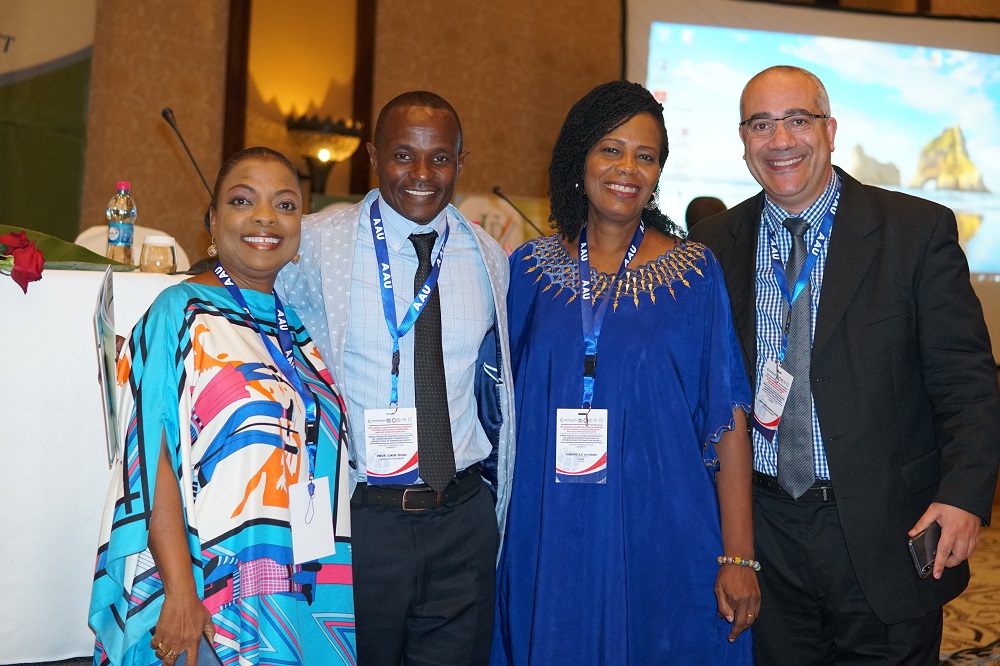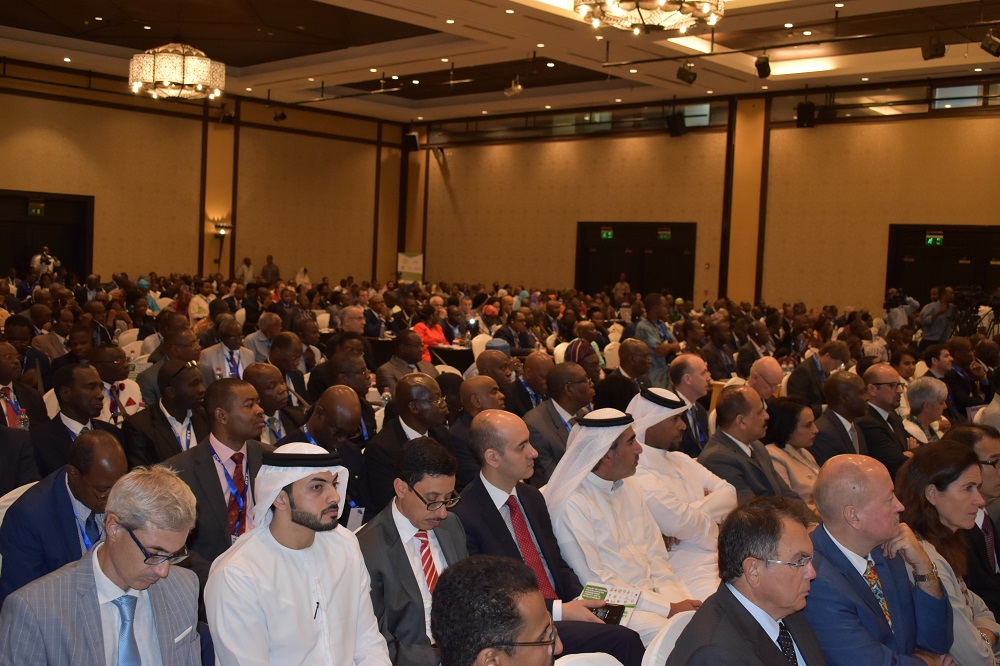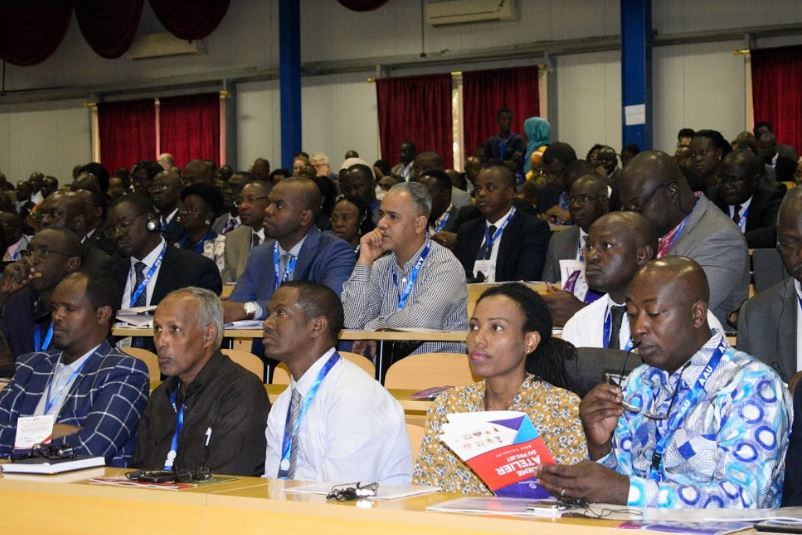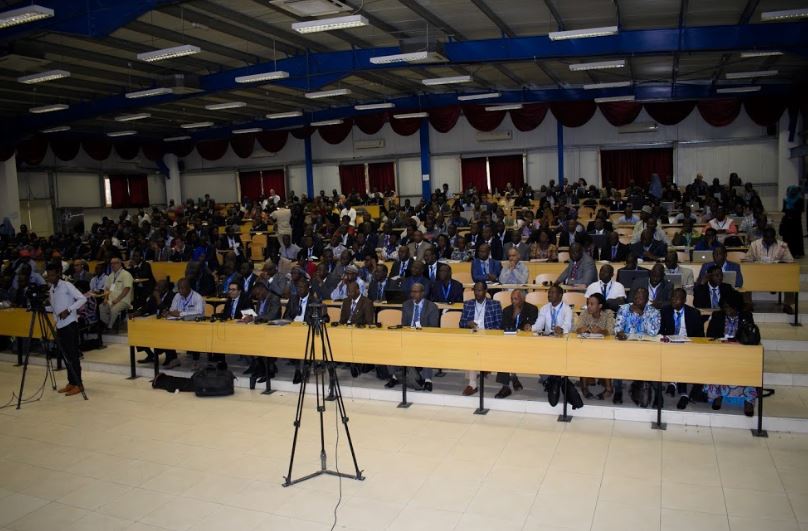Countries Eligible for Participation (Anticipated)
REPUBLIC OF BURKINA FASO
REPUBLIC OF CAMEROON
REPUBLIC OF DJIBOUTI
REPUBLIC OF GHANA
REPUBLIC OF GUINEA
REPUBLIC OF TOGO
REPUBLIC OF THE GAMBIA
REPUBLIC OF NIGER
FEDERAL REPUBLIC OF NIGERIA
REPUBLIC OF SENEGAL
(Other countries may join following the discussions between the World Bank, national governments and other potential financiers)
A. Introduction
The Africa Centers of Excellence for Development Impact (ACE Impact) project anticipates the formal launch of a Call for Proposals in June 2018. Eligible higher education institutions from participating countries in West and Central Africa will be encouraged to submit proposals that address a regional Development Challenge through a focused program of postgraduate education and applied research.
This pre-announcement letter has been released to introduce the anticipated project, and to share a draft version of the Call for Proposals so that potential applicants can begin developing their proposals.
B. Objective and Expected Results
The Project development objective is to improve quality, quantity and development impact of postgraduate education in selected universities through regional specialization and collaboration.
The expected results of the proposed project include:
- Increase in the number of students (with a focus on regional and female students) enrolled and graduating from the masters and PhD programs
- Improvement in the quality of programs (including increase in number of programs and ACE host institutions that obtain international accreditation, stronger regional and global partnerships)
- Improvement in the relevance of the trainings and applied research evident through:
- Increase in amount of externally generated income
- Increase in number of industry/sectoral partners and stronger commitments from these partners (through funding, internships, advisory board participation, etc.)
- Increase in regional networks
- Evidence of substantial development impact attributable to the project.
C. ACE-Impact Components
Proposals may be submitted through the national governments to the ACE Impact project either under the Component 1 or the Component 2 process. Please refer to page 4 for the list of contact persons for each participating country.
(i) Component 1 has two Sub-components: Sub-component 1.1 will provide support to newly established centers of excellence; and Sub-component 1.2 will provide additional support to existing centers with a record of excellence in the ACE I Project. Each Component 1 ACE center will address a regional development challenge through high quality postgraduate education, targeted applied research, and short courses for mid-career professionals. Partnerships with national, regional, and global industry, sectoral actors and academic institutions will ensure that the ACEs focus their activities on the relevant education and research needs to solve specific problems associated with the development challenges.
Approximately ten Component 1 centers are anticipated to be supported in pre-identified thematic sectors, and must respond to specific topical Terms of Reference that will be specified in the formal Call for Proposals. These sectors are expected to include water, ICT, power (energy), urban design, coastal degradation, environmental/social safeguards, math/science education, quantitative economics and health. The Terms of Reference will focus on the training/skills needs as well as some particular research priorities that the centers are expected to address.
A further 15-20 Component 1 centers will be supported in topical areas that address a Development Challenge, but are not subject to pre-identified Terms of Reference.
(ii) Component 2 will provide support to strengthen emerging centers in countries with higher education systems that are not yet mature enough to be competitive under Component 1. This component will provide targeted support to build national undergraduate and postgraduate education and support to engage in regional applied research in thematic areas of regional need. Those institutions supported through Component 2 will be expected to partner with ACEs supported under Component 1 to strengthen regional academic networks and build education and research capacity.
D. Draft Call for Proposals
Attached to this pre-announcement letter is the draft Proposal template. While this draft Proposal template may not be the final version formally released in June, the basic structure and objectives of the Call for Proposals is expected to remain consistent. Those institutions that intend to submit a proposal are encouraged to begin proposal development with the expectation that the broad sections described will remain.
This draft Call for Proposals is focused on Component 1.1 – new Centers of Excellence. Current ACE 1 Centers of Excellence seeking renewed (additional) funding through ACE Impact (Component 1.2) will respond to a similar call but are expected to provide additional content as part of their proposal, including incorporating results from ACE 1 to support the appropriate sections of their proposal. Component 2 proposals may address undergraduate education activities in addition to postgraduate education, while receiving needed regional technical assistance.
(i) Regional Scope
The ACE Impact project is designed to strengthen targeted regional higher education capacity of West and Central Africa. This regional focus is a key element of the project. In responding to the Call for Proposals, institutions should describe how the proposed center serves a regional need, and will grow its regional impact through education and research activities. ACE Impact centers are expected to serve as regional hubs – recruiting students from across the region (30% of center enrollments), building regional partnerships, and conducting applied research on a Development Challenge that is relevant for West and Central Africa.
(ii) Industry/Sectoral Engagement
The active participation of companies and/or sectoral1 stakeholders in defining and assisting in the education and applied research activities for each center is essential to the success of the ACE Impact project. Industry is uniquely positioned to inform each center of the skills needs to advance the sector and what coursework is necessary to prepare students for a rapidly changing workplace. In addition, regional industry actors are well-positioned to inform each center of the applied research needs to effectively support regional industry and to address the most pressing questions associated with the Development Challenges.
Institutions intending to respond to the ACE Impact Call for Proposals must reach out now to potential local, regional, and international industry partners. In addition to helping define the education and research goals of the proposed center, industry is expected to join the Industrial Advisory Board (IAB), and to contribute financially to the activities and sustainability of the ACE Impact centers. Evidence of strong commitments and demand from industry/sectoral partners are expected to be submitted (including commitment letters, market surveys, etc.)
(iii) Academic Partnerships
Academic partnerships – national, regional, and global – are encouraged for potential ACE Impact centers, and can be with individual collaborators or at the department/center/institutional level. In the proposal stage, institutions should identify academic partners who commit to collaborate with the center to support its mission. These partnerships may build upon previous collaborations, or may be new and indicate a need or opportunity for the proposed center. Partnerships may: (1) raise the education and research capacity of the proposed center by leveraging the expertise (and/or resources) offered by the partner and that may not exist at the center; (2) increase the capacity of partner institutions in the region to deliver quality education and research; and/or (3) build a network – with specializations among the members – that can raise regional capacity to address a Development Challenge.
E. Evaluation Process
All proposals submitted for Component 1 centers in the ACE Impact project will be evaluated through an open, rigorous, transparent, competitive and merit-based process consistent with international standards for funding centers of excellence. The evaluation process will consist of two sequential steps: Desk Evaluation of the written proposal; and On-site Visit to a short-list of proposed centers. The criteria that will be used to evaluate all proposals will be made available when the formal Call for Proposals is released.
1 Sectoral partners can include relevant public enterprises, Ministries, government agencies, public authorities, chambers of commerce, trade groups, hospitals, policymakers and other appropriate stakeholders.
F. Anticipated Timeline
The formal launch of the Call for Proposals for ACE Impact is expected to occur in June 2018. The Call for Proposals will include details on the evaluation and selection criteria, and again provide a list of national contact points (and, where appropriate, national ACE Impact project websites) for additional information related to the submission of proposals.
Proposals submitted under Component 1 will be due approximately three months after the Call for Proposals is launched (August 2018). The evaluation process is anticipated to be completed in October 2018, with selection of the ACE Impact Centers made by the Project Steering Committee by late October 2018. The formal launch of the ACE Impact Centers is planned for February 2019.
G. Partnerships
The ACE Impact project has sought to establish strategic partnerships with leading international research funding organizations, research performing organizations and national development organizations to strengthen the project. It is anticipated that Agence Française de Développement (AFD) will co-finance ACE centers with the governments and World Bank. Additional higher education and research agencies from France, Germany, Japan, the UK, China, Korea and the USA are expected to support researchers collaborating with the ACE Impact centers.
H. Contact Persons
| Country |
Contact Person(s) |
Email |
| Republic of Burkina Faso |
Mr Rasmane Kabore |
ramaneka@hotmail.com |
| Republic of Cameroon |
Prof Logmo aaron |
logmoa2003@yahoo.fr |
| Republic of Djibouti |
Dr Fahmi Ahmed |
fahmi_gamal@yahoo.fr |
| Republic of Ghana |
Prof Mohammed Salifu
Mr Edmund Aalangdong |
salifum@ncte.edu.gh
edmoundan@yahoo.com |
| Republic of Guinea |
Prof Mamadou Saliou Diallo |
msbala.diallo@isfad-gn.org |
| Republic of Togo |
Prof Kouami Kokou |
kokoukouami@hotmail.com |
| Republic of The Gambia |
Mr Yusupha Touray |
yusuph77@gmail.com |
| Republic of Niger |
Mme Sabo Haoua Seini |
hseinisabo@yahoo.fr |
| Federal Republic of Nigeria |
Dr Joshua Atah |
jaatah@nuc.edu.ng |
| Republic of Senegal |
Prof Amadou Abdoul Sow |
amadouabdoul.sow@ucad.edu.sn |




